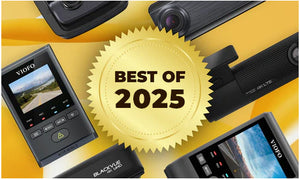Dashboard cameras are a great way to improve the safety and security of motorists and cars on the road, and we cannot deny the power of dash cam footage in the event of an incident, such as a car accident.
But are dash cams legal? One concern many new dash cam owners have is whether or not they are allowed to use their device. While dash cams are legal to have in your car on the road, restrictions affecting legal dash cam installation and placement do vary from state to state.
The good news is that in general, you are legally allowed to drive with a dash cam in the US. But there are wiretapping laws and privacy laws that you need to be aware of - after all, a dash cam is technically a form of surveillance.


